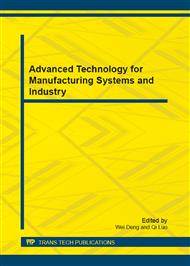p.1280
p.1286
p.1292
p.1296
p.1302
p.1307
p.1312
p.1316
p.1321
Research of Self-Study Arithmetic on Energy Recovery Brake Pedal in Hybrid Cars
Abstract:
This study summarizes the necessity of researching brake pedal in hybrid cars, analyzing the shortcomings in self-study algorithm of capacitive hybrid cars and puts forward the improved algorithm to brake pedal self-study, combined with capacitive hybrid cars. Braking effects with the self-study algorithm control software are proved through the experiment.
Info:
Periodical:
Pages:
1302-1306
Citation:
Online since:
November 2012
Authors:
Keywords:
Price:
Сopyright:
© 2012 Trans Tech Publications Ltd. All Rights Reserved
Share:
Citation:


